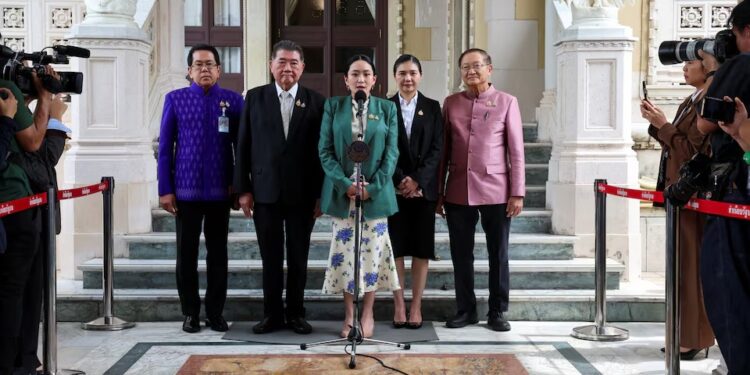Thailand’s Constitutional Court has suspended Prime Minister Srettha Thavisin from official duties while it considers a high-profile case seeking his removal from office over alleged ethical violations linked to a controversial cabinet appointment.
The court announced its decision following a petition lodged by Thailand’s Senate, accusing Srettha of breaching the constitution by appointing a former lawyer, Pichit Chuenban, as minister despite his previous criminal conviction. The nine-judge panel ruled in favour of an immediate suspension pending the outcome of the case, citing the need to preserve the integrity of the country’s highest political office.
Srettha, who came to power in 2023 as part of a complex coalition led by the Pheu Thai Party, has denied any wrongdoing. In a brief statement issued following the ruling, he said he respected the court’s decision and would fully cooperate with the legal process. “I remain committed to serving the Thai people and upholding democratic principles,” he added.
The suspension comes at a politically delicate time. Thailand has faced growing calls for reform, particularly from younger voters and pro-democracy groups, many of whom supported the progressive Move Forward Party in last year’s general election. That party was ultimately sidelined in coalition talks, with Pheu Thai forming a government that some see as a compromise with conservative elites.
Critics argue that the case against Srettha is politically motivated and part of a broader pattern of judicial interventions in Thai politics. Since 2006, multiple elected leaders have been removed or barred from office through court rulings, raising questions about the independence of democratic institutions.
The case centres on the appointment of Pichit, who served jail time in the early 2000s for attempting to bribe court officials. Although he resigned from his cabinet post in April under growing pressure, opposition lawmakers argue that Srettha’s decision to appoint him in the first place constitutes a breach of ethical conduct under Thailand’s constitution.
Under Thai law, the Constitutional Court has the authority to remove elected officials found guilty of violating moral or legal codes tied to their public duties. A final ruling could take weeks, during which time Srettha is barred from performing his role as prime minister. In his absence, a deputy will assume caretaker responsibilities.
The outcome of the case could have serious implications for Thailand’s fragile political stability. Should the court rule against Srettha, it may force the Pheu Thai Party to select a new leader or prompt calls for fresh elections. It could also galvanise protest movements that remain wary of military and judicial influence over civilian governance.
For now, Thailand awaits the next phase of courtroom proceedings, in what many see as another test of the country’s long-troubled democracy.
REFH – newshub finance



Recent Comments